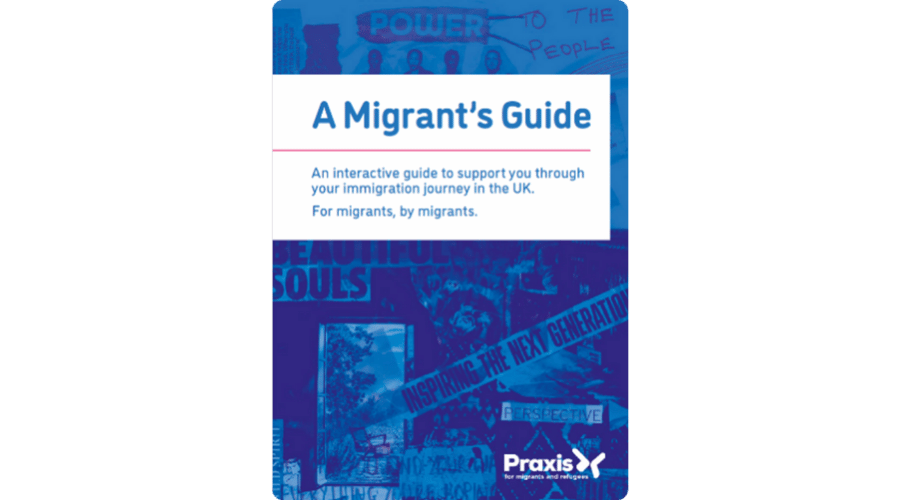More news items and new guides – Summer issue 2025
Here is the housing rights miscellany of news items and new guides and publications.
New government legislation reaches report stage
The second reading of the Border Security, Asylum and Immigration Bill took place in the House of Lords in June, and it is now at committee stage. UNHCR published an updated version of their briefing on the bill, addressing the amendments made by the government since it was first published. The update includes concerns about the proposed expansion of the definition of “particularly serious crime”, used to exclude a person from refugee status.
Compensation for victims of the Windrush scandal depends on access to legal advice
Survivors of the Windrush scandal have received significantly less compensation than they may be entitled to, due to lack of government funding for legal advice. A review of 17 applications to the compensation fund revealed that claimants who challenged their awards after taking legal advice received huge increases in the amount offered. The Solicitors’ Journal explained how victims suffered due to lack of legal advice funding.
A report, produced by JUSTICE, the University of Sussex, and Dechert LLP, highlights how one payout rose from £300 to £170,000 and another who was initially refused compensation received a £295,000 settlement, both after legal support from a charity. The scheme denied compensation to two-thirds of applicants and the study calls for funded legal assistance for claimants.
Windrush Day was celebrated on June 22: in a House of Commons debate, Stella Creasy MP pointed to evidence “that those given compensation to date have not actually been given the same amounts as those in other comparable scandals.” The House of Commons Library published a briefing for the day. The Guardian has a delightful photo gallery of people from the Windrush generation.
Windrush Day prompted the announcement that a Windrush Commissioner, Reverend Clive Foster MBE, has finally been appointed. He will “provide independent oversight of the government’s work to address the Home Office Windrush scandal and ensure the voices of victims remain at the heart of efforts to deliver justice.”
Legal aid crisis worsens with shortages throughout the UK
The latest report from Jo Wilding for Justice Together, No Access to Justice 2, looks at the continuing immigration and asylum legal aid crisis. This updates her 2022 report and includes a region-by-region analysis of demand and provision.
Previously, London was the only region where there was a (small) surplus of advice in immigration and asylum. Now demand exceeds supply across England, Wales and Northern Ireland. Scotland does not have a deficit overall, however services are concentrated in Glasgow and there are shortages in other areas.
Migrant children living in poverty is a hidden crisis
Olivia Blake MP told Politics that an estimated 1.5 million children in the UK live in poverty in families with migrant parents — accounting for more than a third of all such children. Shockingly, 46 per cent of migrant children live in poverty, nearly double the rate for other children. Yet despite this, the NRPF policy — a blanket ban on access to the social safety net for most migrants — remains largely absent from conversations on poverty and inequality. “This silence must end,” she says.
“I was dying in silence”: one victim of the NRPF rule told the Big Issue.
The UK clamped down on migration: the LGBTIQ+ community was collateral
An investigation by openDemocracy reveals that the Nationality and Borders Act 2022 (NABA) has disproportionately impacted LGBTIQ+ people fleeing persecution. Analysis of government data suggests that changes introduced in NABA reduced the number of LGBTIQ+ people attempting to claim asylum in the UK. In 2022, the year NABA was passed, there were 2,711 asylum claims made where people mentioned possible persecution as a result of their sexual orientation. The following year, this fell to 1,377 claims.
Black people’s access to social housing
As the newsletter went to press, Shelter published a new report on Black people’s access to social housing, My Colour Speaks before Me. It was covered in depth in The Guardian and in part deals with migrant experiences of attempting to obtain social housing and what happens if they succeed.
Vital solutions to ending migrant homelessness
NACCOM and Homeless Link have published an updated version of their joint briefing Vital solutions to ending migrant homelessness, outlining the key drivers of migrant homelessness and the policies the new government should implement to create a society with a home for everyone.
The new version reflects recent policy changes, including repeal of much of the Illegal Migration Act 2023 and the introduction of the Border Security, Asylum and Immigration Bill 2025.
The biggest change is a new section on “Continuation of hostile rhetoric and restrictive reforms.” Citing recent changes to asylum and immigration policy and the far-right riots in the summer of 2024, it emphasises the need to reset the narrative on migration in the UK to ensure that people seeking asylum and other migrants can access the support they need.
Understanding the racist riots of 2024 and what should be done
The Race Equality Foundation have released a new report on the causes of and responses to the racist riots in 2024. It outlines how the UK government has failed to tackle the underlying causes of the 2024 summer riots. Despite the severity of the violence last summer, the report warns the conditions that led to the riots remain unchanged and unchallenged. Its recommendations include ones on tackling racialised hate and Islamophobia.
Strangely, there is no mention in the report of asylum accommodation hotels, the focus of some of the riots, or what should be done to protect asylum seekers.
Inside Housing, in an article on progress since the Black Lives Matter campaign, describes how two Liverpool housing associations were targeted by racists who produced videos claiming that 95 per cent of their new homes would go to ethnic minority people and migrants.
Mushtaq Khan, writing for BMENational, looks at lessons for housing organisations from the far-right riots.
A guide to assisting survivors of modern slavery in the asylum system
A new guide published in June, was developed by the Anti-Trafficking Labour Exploitation Unit (ATLEU) and the Asylum Support Appeals Project (ASAP) in partnership with British Red Cross. It provides information on support entitlements under the National Referral Mechanism, the cross over with asylum support, as well as tips and templates for navigating the common challenges arising when supporting survivors in the dual systems. The guide covers England and Wales, but not Scotland and Northern Ireland, which have separate support provisions.
The Home Office has also published guidance on modern slavery and how to identify and support victims. The guidance describes the signs that someone may be a victim, the support available to them, and the process for determining whether someone is a victim of such activities. There is also a resource page to share examples of available training resources.
Free Movement has an updated briefing on the mechanisms for support for migrant victims in the modern slavery system.
The Signposting Database of organisations assisting migrants
Revoke, Praxis, Migrant Rights Network, Bail for Immigration Detainees and Pelican House Outreach have been working on a new, collaborative version of the database first put together by Conversations over Borders. All advice organisations are urged to use the database: it only stays up-to-date and usable if we use it and keep it up to date.
Important: you cannot edit the existing database, you can only read it. Therefore, to change any details about your organisation you must complete a form and label it new, e.g. “Revoke – New details”.
Please email bobby@revoke.org.uk and teya.cooper@praxis.org.uk with any questions about adding your organisation to the database or if you want to join the in-person low-key database maintenance sessions.
Other news items
- Racist attacks in Northern Ireland. CIH Northern Ireland and other bodies issued a press statement condemning the incidents in towns such as Ballymena in June, where homes were attacked and also a leisure centre where families had taken cover. The Guardian argued that racism fuelled the violence.
- Changes to the qualifying period for EU settled status. Confusing requirements for settled status under the EU Settlement Scheme have been clarified by government amendments to the Immigration Rules, explained in this letter. They take effect on 16 July. There is a detailed analysis from HJT.
- Asylum seekers in Wales share their dreams. “I want my children to have a safe life”, one asylum seeker told the Big Issue, which spoke to four people supported by charity Oasis about what life is like for asylum seekers and refugees in Wales.
- House of Commons briefing on NRPF. The House of Commons Library has a new briefing on NRPF. It confirms that approaching four million people in the UK have no recourse to public funds.
- Immigration Appeals Rights. The House of Commons Library also has a new research briefing on this topic.
Other new guides
- A Migrant’s Guide — Praxis for Migrants and Refugees. A new online guide from Praxis.
- Scope of legal aid for victims of domestic abuse. Rights of Women have a briefing on changes to the scope of legal aid in relation to domestic abuse immigration applications. They say that this ensures that all migrant victims who are eligible to apply for settlement as a victim of domestic abuse qualify for legal aid, subject to the usual means test.
- Immigration raids and how to resist – A guide for local councillors. The Migrant Champions Network has a number of guides for councillors. The latest is a guide to resisting immigration raids.




